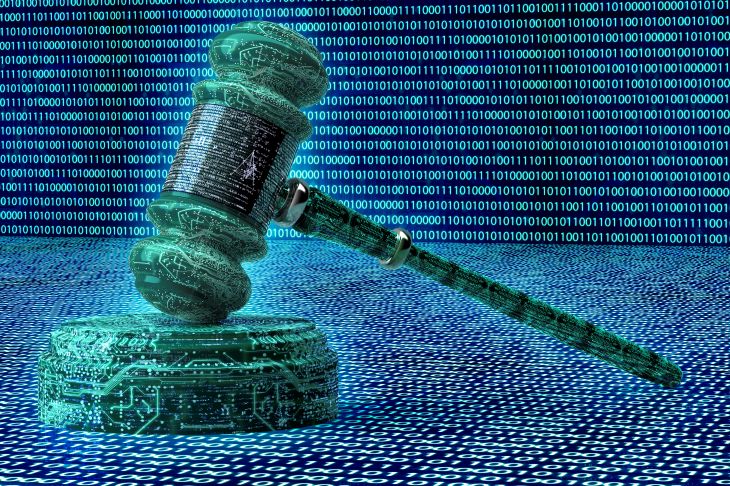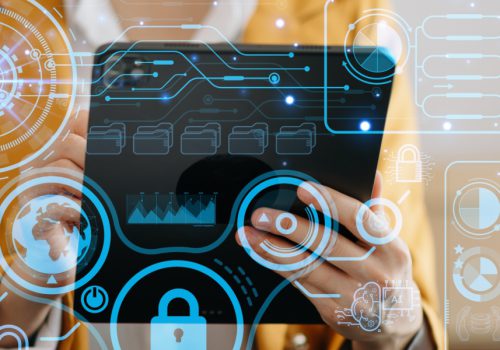In today’s digital age, we are increasingly confronted with challenges brought about by digitalization, cyberspace, new technologies, and the ever-present buzzword of AI, not only in finance or technology-focused fields. Law and the legal profession are no exception. Legal practice in these sectors requires deep expertise, but also the ability to adapt to a rapidly changing environment. In this article, I aim to provide insight into what a typical day looks like for a Central European lawyer specializing in cybersecurity, technology, and, most recently, data protection in the financial sector: what drew me to this field, and what expressive and intellectual aspects this work entails.
Cyber Lawyer – A New Term in Practice or Just a Fancy Label for Expensive Legal Services?
A cybersecurity/technology lawyer is an expert who combines deep legal knowledge with an understanding of modern technologies and the digital world. In an era of rapid technological advancement and growing cyber threats, this expert plays a key role in addressing legal issues related to data protection, cybersecurity, digital rights, and cybercrime. Our work often goes beyond traditional legal frameworks due to the specificities of the environment. The classic form of legal advice, such as written analyses or client representation in disputes, is frequently complemented by the creation of new, innovative, and above all, tailor-made policies, contract types, and professional trainings for organizations, with the aim of minimizing risks and ensuring compliance with rapidly evolving legislation.
It is important to realize that the ability to bridge technology and law is essential for building trust and security in the digital age. A cybersecurity lawyer must at least have a basic understanding of technology, cybersecurity issues, IT infrastructure, blockchain, the significance and principles of encryption, and artificial intelligence models and functions in order to effectively address legal matters in the digital environment.
Just as technology (unfortunately, regulation typically follows with delay) evolves, so does the law. Therefore, the right expert must be prepared to adapt quickly to new requirements and trends, which demands continuous education and monitoring of legislative developments. In their work, this expert combines legal, technical, and business aspects to provide clients with comprehensive solutions that consider not only legal requirements but also technological possibilities and risks. When done correctly, this often results in savings for the client either in terms of legal advice or avoiding potential sanctions, but also by increasing efficiency and shifting contractual risk appropriately to business partners.
Rather than focusing on dispute resolution, I personally often concentrate on risk prevention, drafting security policies, analyzing both internal and commercial B2B settings, as well as providing various professional training courses, lectures, and mentoring programs for organizations.
What Does a Typical Workday Look Like in Practice?
As a lawyer specializing in cybersecurity, particularly in the financial sector, my daily work involves analyzing and implementing regulatory requirements, such as NIS2, the Cybersecurity Act, or DORA (Digital Operational Resilience Act). These frameworks significantly impact financial institutions as well as IT firms (and many other ICT service providers) operating in this sector. In finance, as in most regulated industries, general regulatory requirements are supplemented by numerous implementing regulations and methodologies that are constantly evolving to address urgent demands and the ever-changing needs of practice.
Close cooperation with IT and security teams is essential for risk assessment and the preparation of internal cybersecurity policies. I often work closely with compliance managers in various areas, addressing the implementation of NIS2, data protection (not only within GDPR), or other relevant regulations. Ensuring legislative compliance, conducting audits, properly setting up internal policies, and analyzing or revising contractual documentation are all critical to preventing potential incidents and ensuring compliance.
Many attacks or incidents (unless caused internally or by human error) target vulnerabilities of third parties, so it is crucial to secure not only internal systems but also those of external service providers, such as cloud services. In my work, I encounter a wide range of products, services, and practical operational setups. Each link in the chain can be unique, which makes the work even more interesting. Just when I start to feel like I have seen it all, a new client introduces their own “reality of best practices” — how things have worked for years and, according to them, will never change.
An external legal perspective can be eye-opening in such cases, as lawyers are not involved in the organization’s daily problems and can see issues in a broader context, often highlighting practical shortcomings in chosen setups that, while stemming from regulatory requirements, may ultimately help the client streamline supplier relations, internal processes, and, among other things, save costs that are often spent inefficiently.
Another important aspect to mention is employee training to raise awareness of cyber threats and legal obligations. Well-structured internal processes can save not only money but also protect the company’s reputation and leadership in the sector. Maintaining detailed documentation of all measures and steps taken to ensure compliance is key to demonstrating adherence to rules during potential inspections.

What Drew Me to Cybersecurity Law: Challenges and Rewards Unique to the Field
My motivation stems from the growing need to protect digital assets, not only clients’ personal data, which are frequent targets of sophisticated cyber-attacks. The desire to help ensure trust in digital technologies, innovative products, and secure financial services, where sensitive information is protected from misuse, led me to specialize in this field.
The work can be demanding, as it requires constant monitoring of technological innovations and legislative changes, as well as the ability to address complex issues associated with cyber threats and their real-time impact on clients. It is also a responsible role, since proper security measures are essential for protecting large volumes of personal and financial data, and in some cases, avoiding hefty fines.
Key challenges include the rapid digitalization across sectors, not only in industry but everywhere around us, and the ever-changing threats that often outpace current legislative frameworks. A good lawyer must also balance security requirements with clients’ business goals. The reward lies in the opportunity to contribute to building our society’s digital resilience and to protect not only customers, but also their clients from cyber-attacks. In doing so, one helps to strengthen trust in digital services and the expertise of legal advisors. You are thus helping build trust in the digital world, which in my opinion, is crucial today.
How Has Cybersecurity Law Shaped My Worldview and Lifestyle?
My work has taught me to emphasize security and caution not only professionally, but also personally. Digital security has become an integral part of my daily routine, from password policies to being cautious about sharing information online. I have developed a habit of thorough preparation and information verification, as accuracy is crucial in this field. Values such as integrity, trust, and transparency are inseparable from both my professional and personal life.
I must admit, however, that despite everything, I am sometimes surprised by a phishing message disguised as a delivery notification, especially when I am expecting a package from a client or even just a private message. I carefully examine the content of such messages and pay attention to what data is being requested, for what purpose. On the other hand, when I receive an urgent request from a “family member” stranded far from home who claims to have lost everything and, from an unknown number, provides an IBAN and asks for my bank details or money to pay for a ticket home, I can only smile. But trust me, not because I am indifferent to my family’s fate, but because I can confidently recognize it as a common scam.
As I said, working in digital technology law means you are constantly learning and adapting (alongside the field), which keeps the work both dynamic and engaging. I regularly follow developments in cybersecurity, legislative updates, and technological trends to provide up-to-date and qualified advice. Core values such as trust, responsibility, and transparency underpin not only my professional work but also shape my approach to life and collaboration within teams.
Conclusion
To sum it up: From my perspective, a lawyer specializing in tech and cybersecurity – particularly when advising in the financial sector – must be not only a legal expert, but also knowledgeable in technology and an active participant in digital transformation, helping to protect clients’ key assets from the growing threat of cyber-attacks. This requires a combination of legal expertise, technological understanding, and a strong ethical foundation that safeguards the digital future for all of us. If one can also develop a genuine passion for this field, success is almost guaranteed. The diversity this work offers, whether in terms of the wide range of professions you regularly interact with or the ever-evolving regulatory landscape, will truly captivate you (in the best possible sense).









